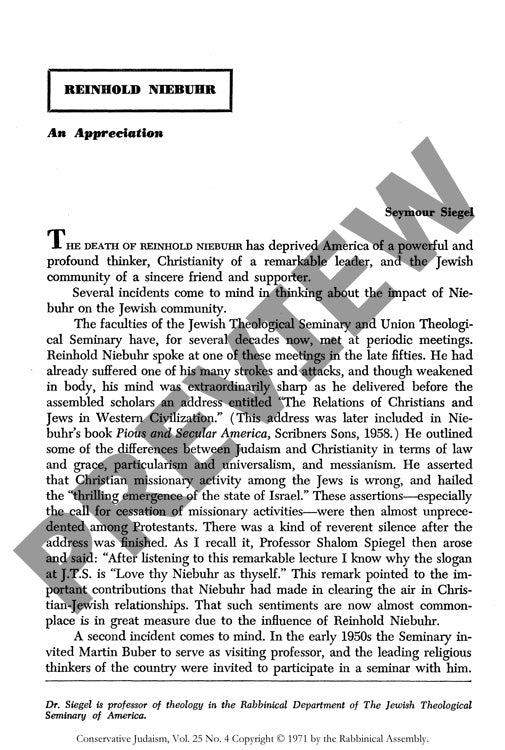Reinhold Niebuhr an Appreciation
Couldn't load pickup availability
Reinhold Niebuhr emerged as an unlikely champion of Jewish-Christian understanding during a pivotal era of religious tension and global conflict. His unprecedented opposition to Jewish missionary conversion and strong support for Zionism marked a radical departure from mainstream Christian theological positions of his time. Through personal anecdotes and theological analysis, Siegel reveals how Niebuhr challenged prevailing Christian attitudes toward Judaism across three critical domains: his early advocacy for establishing Israel despite widespread Christian opposition, his forceful rejection of pacifism during the Nazi persecution of Jews, and his development of theological concepts that bridged Christian and Jewish thought, particularly regarding human nature and the "evil inclination" (yetser hara). The study combines biographical narrative with theological interpretation to demonstrate how Niebuhr's sophisticated understanding of religious symbolism—exemplified in his interpretation of resurrection doctrine and religious myths as meaningful but non-literal expressions of divine-human relationships—transformed interfaith dialogue. His theological realism, which balanced recognition of human limitations with calls for social justice, ultimately provided insights that transcended denominational boundaries and laid groundwork for contemporary interfaith understanding and pluralistic religious dialogue.

More Information
-
Physical Description
-
Publication Information
Published 1971
ISBN
-
Publication Credits

